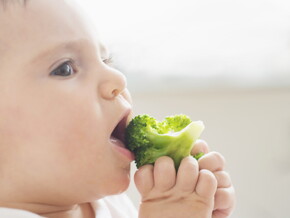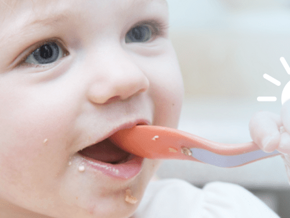
It’s the little things that can make a big difference when it comes to what your toddler eats and drinks. Check you’re following these tips and ask yourself if they’re true at family meals in your home today.
If you are already following all of the advice, congratulations, you are giving your toddler the best chance of becoming a healthy independent eater. If not, don’t worry. Take note of what is missing from your family mealtimes and try to make small changes now that will have a lasting impact on your toddler’s eating habits.

1. Make sure TVs and screens are turned off and removed from the table to avoid distracting your little one.

2. Create a warm, pleasant, and friendly atmosphere with plenty of interaction.

3. Sit down as a family to enjoy your evening meal together most nights of the week.

4. Trust your toddler’s fullness cues and let them decide when they’ve had enough. Their appetite may vary from day to day but they’re generally hungry at mealtimes.

5. Enjoy a variety of meals and trying new foods together. If your toddler is reluctant to try unfamiliar foods, see How to help your baby learn to like new foods and textures for some helpful tips.

6. Be good role models for your toddler by eating the same healthy food you offer them and showing them you like your food. (Don’t make a face or say something tastes bad.)
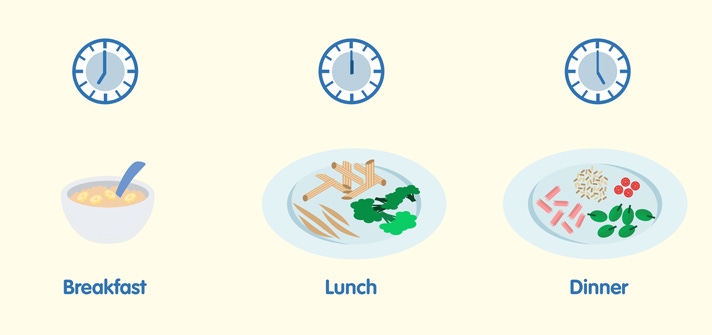
7. Offer your toddler three main meals a day, at regular times.
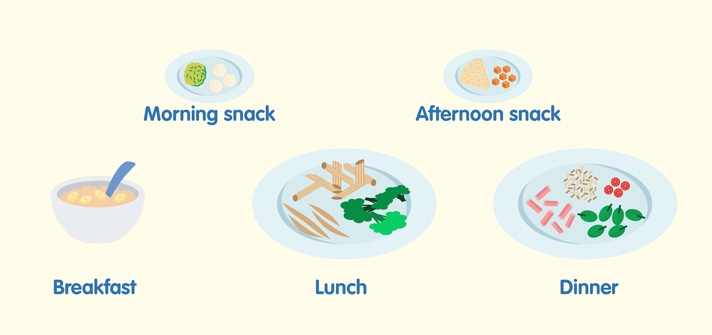
8. Offer your toddler one to two snacks each day. Toddlers need to be offered food frequently; they don’t need to eat constantly. Leave time between meals and snacks to give them a chance to feel hungry.
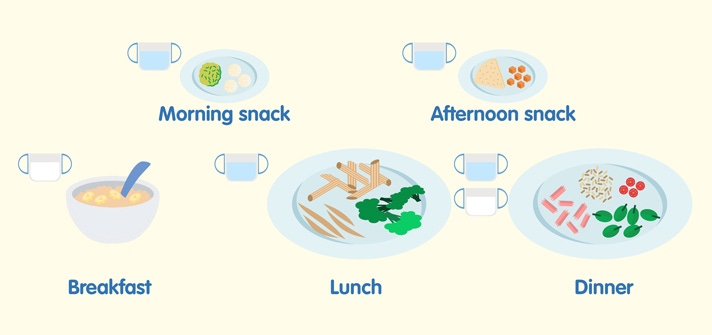
9. Offer your toddler drinks (milk or water) with meals and when eating in between these times. Don’t offer them sugar-sweetened beverages.
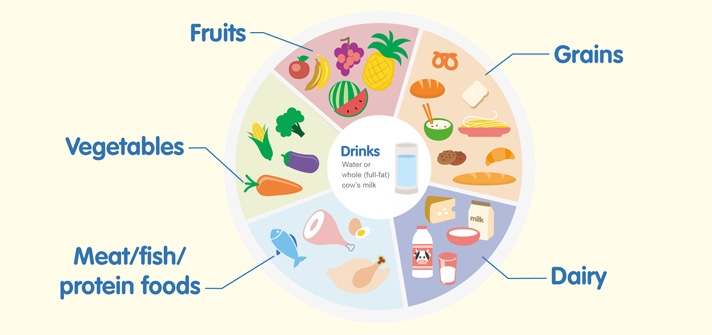
10. On a typical day, offer your toddler foods from all the food groups: fruits, grains, dairy, meat/fish/protein foods, and vegetables.
Try to follow these steps as often as you can. By sitting down to meals together as a family and role modelling healthy-eating habits, your toddler will benefit now and into the future.
Sources
Black RE, Makrides M, Ong KK (eds): Complementary Feeding: Building the Foundations for a Healthy Life. 2017 Nestlé Nutr Inst Workshop Ser, vol 87, pp 153–165, (DOI: 10.1159/000448965)
Dattilo AM Programming long-term health: Effect of parent feeding approaches on long-term diet and eating patterns. In: Early nutrition and long-term health, mechanisms, consequences and opportunities. Ed., Saavedra and Dattilo, Elsevier, 2017: 471-95.
Shelov SP & Altmann TR (Eds.). (2009). American Academy of Pediatrics. The complete and authoritative guide Caring for your baby and young child birth to age 5 (5th ed.). USA: Bantam Books.




